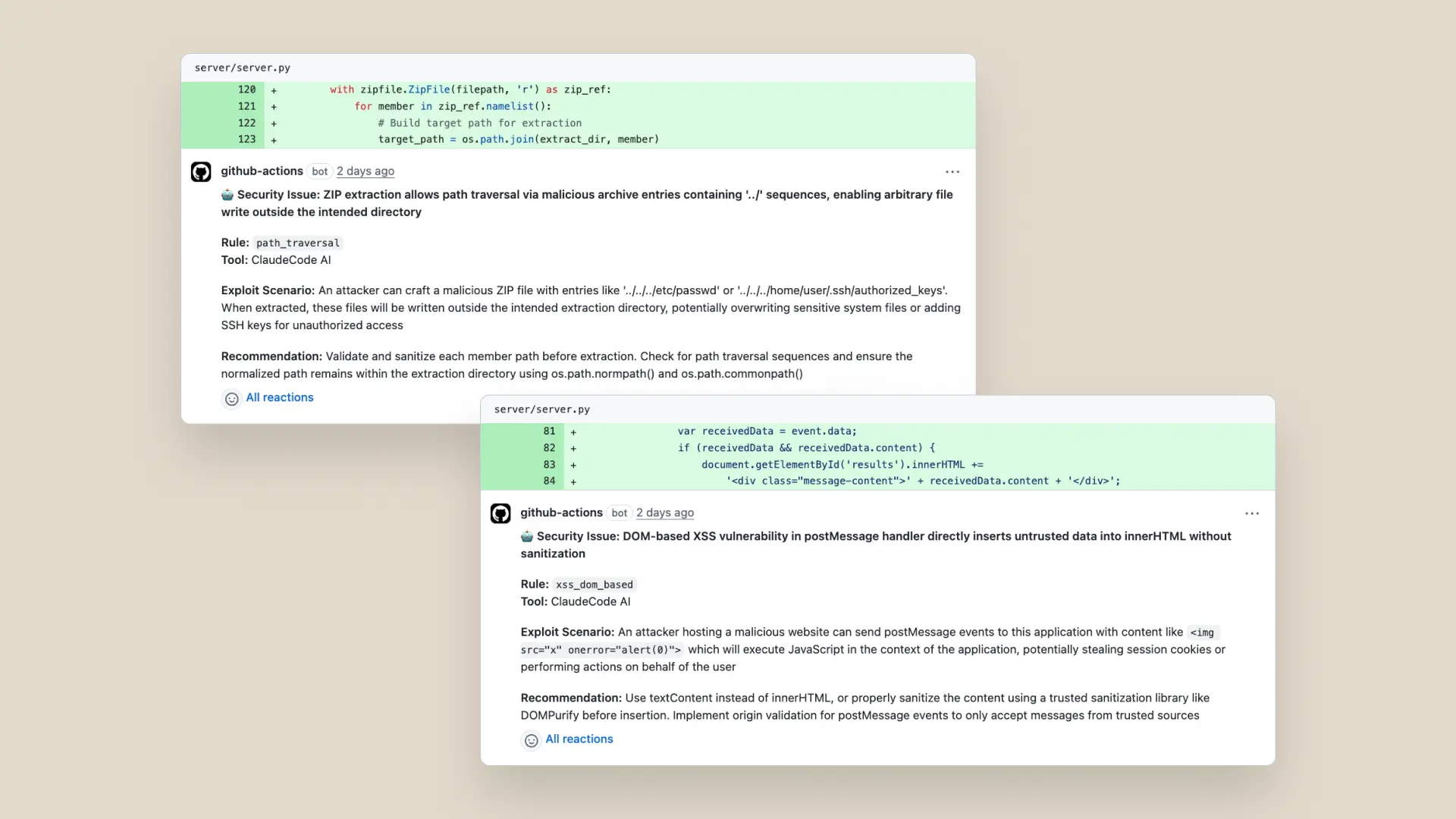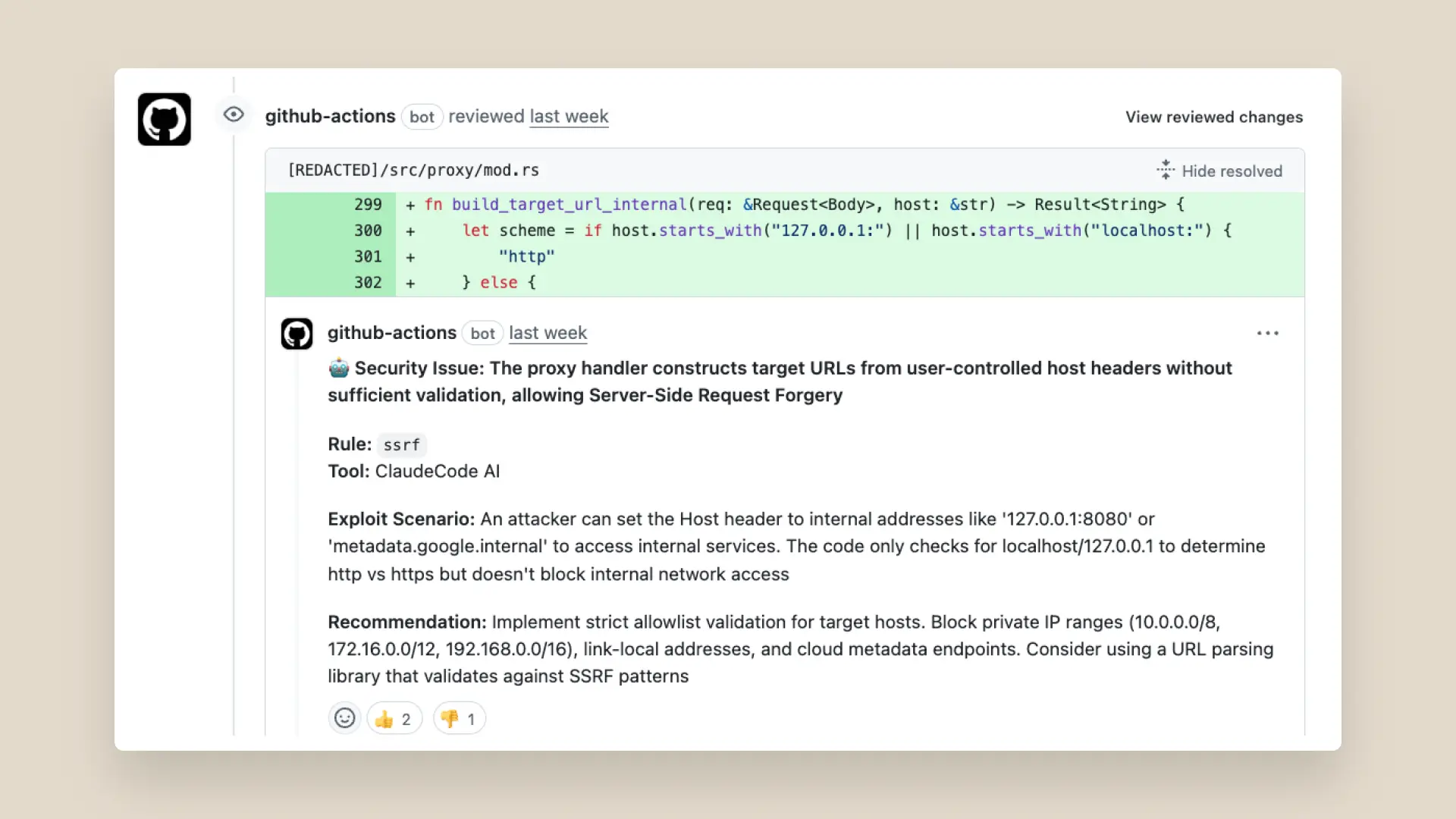

Anthropic has rolled out a genuinely practical feature for developers: automated security reviews integrated into Claude Code. As the pressure to build and ship faster mounts, integrating security directly into the development workflow isn’t just a luxury—it’s a necessity. This new functionality is a pragmatic step in that direction.
A Two-Layered Approach
The solution operates on two levels, addressing both individual developer workflows and team-wide policies.
Ad-Hoc Terminal Reviews: With the
/security-reviewcommand, a developer can run a quick security analysis directly from their terminal before committing code. The tool scans for common vulnerabilities like SQL injection, XSS, and authorization flaws, providing immediate feedback. This keeps security in the inner development loop, where fixing issues is cheapest.Automated Pull Request Analysis: The corresponding GitHub Action automates this process for the entire team. It triggers on every new pull request, reviews the changes, and posts any identified security concerns as inline comments. This ensures a consistent baseline of security for all code entering the repository.
What makes this effective is the workflow: Claude not only identifies and explains the vulnerability but can also be prompted to implement the fix. This moves beyond simple linting to active assistance.
Real-World Evidence
Anthropic is already using these tools internally and reports catching significant issues before they reached production. They’ve shared two compelling examples:
- An internal tool was found to have a remote code execution (RCE) vulnerability exploitable through DNS rebinding.
- A proxy system for managing credentials was flagged for being vulnerable to Server-Side Request Forgery (SSRF) attacks.
Catching vulnerabilities like these demonstrates that the tool can identify complex, non-obvious flaws. While no automated system is a replacement for a dedicated security expert, this approach empowers developers to handle a significant portion of common security hygiene themselves. It’s a solid application of AI that addresses a real bottleneck, making security a continuous part of the development cycle rather than a final, hurried checkpoint.